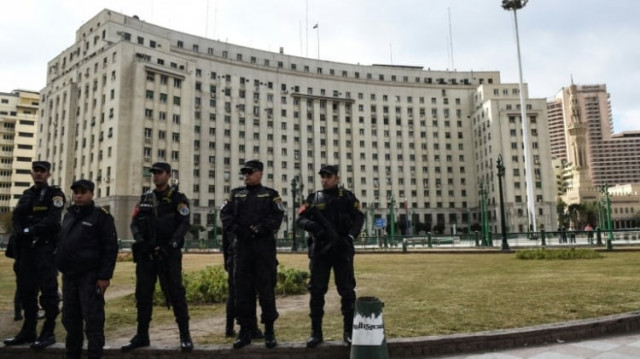Egypt investigates teenage girl's death during female circumcision operation
Despite the ban in 2008, female genital mutilation is still widespread in Egypt, especially in rural areas

Despite the ban in 2008, female genital mutilation is still widespread in Egypt, especially in rural areas. PHOTO: AFP
Seventeen-year-old Mayar Mohamed Mousa died in El Canal hospital on Sunday while under full anaesthesia in the province of Suez, said Lotfi Abdel-Samee, the health ministry undersecretary in the province.
Bohra Muslim leader speech urging FGM is 'huge disappointment' for India campaign
"This is something that the law has prohibited," stressed Abdel-Samee.
Despite the ban in 2008, female genital mutilation (FGM) is still widespread in Egypt, especially in rural areas. It is practised among Muslims as well as Egypt's minority Christians.
The law led to the first prison sentence against a doctor in Egypt in January last year, with the girl's father in that case given a three-month suspended sentence.
On Sunday, Mousa's sister had just undergone the operation before she was sent in for surgery.
The girls' mother is a nurse, while their late father was a surgeon. The operation was being carried out by a registered female doctor, according to Abdel-Samee.
Authorities shut down the hospital on Monday after transferring patients to other hospitals as prosecutors questioned the hospital manager and medical staff involved in the operation, Abdel-Samee said.
They have also spoken to the mother, a prosecution official said.
The case was opened after a health inspector reported the circumstances of the girl's death.
Bohra men must speak up to save their daughters from female circumcision
Medical examiners have carried out an autopsy, and are due to report the cause of death, said Abdel-Samee.
While 200 million women and girls worldwide have been subjected to the practise, there have been major strides in Egypt, as well as Liberia, Burkina Faso, and Kenya against FGM, according to Claudia Cappa, the lead author of a February UN children's agency report on the issue.
"The latest figures from the Egypt Demographic and Health Survey show that we're winning," the United Nations Development Programme said in a report last year.
"Mothers' attitudes are changing, too," UNDP said.
While 92 per cent of mothers had undergone the procedure, only 35 per cent of them "intend to circumcise their daughters," according to the UNDP report.
Victims of the procedure are left to cope with a range of consequences from bleeding and pain while urinating, extreme discomfort during sex, fatal complications in childbirth and deep psychological trauma.



















COMMENTS
Comments are moderated and generally will be posted if they are on-topic and not abusive.
For more information, please see our Comments FAQ